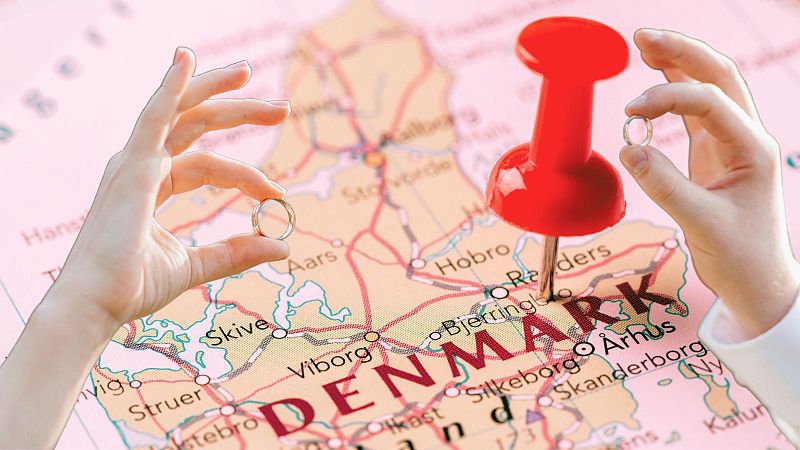
Shotgun weddings don’t have to rhyme with Las Vegas anymore, as Denmark has become the European (and global) hotspot for fast weddings.
Couples from all over the world are flocking to Copenhagen to get married, as the lack of red tape compared to other countries has led some to brand the capital as the "Las Vegas of Europe."
Anita Okkels Birk Thomsen, who heads the marriage department at Copenhagen City Hall, reveals that approximately 8,000 wedding ceremonies took place there last year – with more than 5,000 involving couples who weren’t Danish residents.
"That's almost double what we saw five years ago," she notes. "They come from all over the world."
So, what gives?
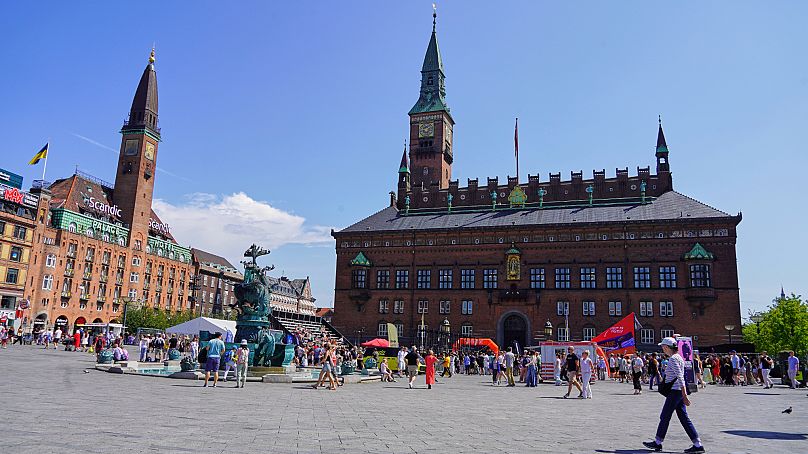
Unlike other European nations, Denmark does not demand birth certificates or evidence of single status in order to obtain documentation permitting marriage. And that marriage can take place within a four-month period.
Denmark's Family Law Agency (Familieretshuset) processes applications for a fee of 2,100 kroner (€282) and delivers a marriage certificate within five working days, provided couples meet the criteria, ie: those not residing in Denmark can simply show a passport or a tourist visa.
Authorities may occasionally request civil status certificates when divorce documentation fails to clearly demonstrate finalised proceedings. Other than that, and especially compared to other countries, it’s a very snappy affair.
Bureaucracy overload
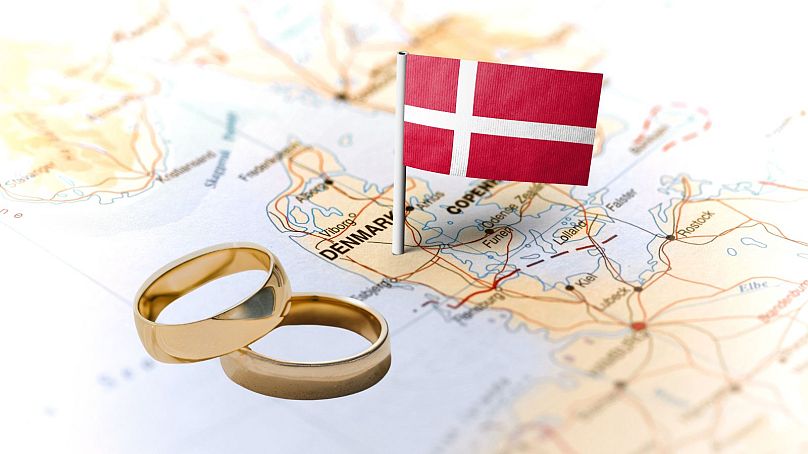
For the sake of comparison, let's look at France.
In the land of passion and romance, you need to fill in a “marriage file” and “build your marriage record”, according to the service public website.
You need to provide the original and a photocopy of documents like your identity card, passport or driving license, as well as proof of domicile or residence dated more than one month.
And that’s just if both partners are French. If you or your future partner are a foreigner, the City Hall “may ask you to provide documents specific to your nationality”, like a “certificate of custom” and a “certificate of celibacy”.
If you happen to be divorced, you’ll be asked for a final divorce decision or a family booklet “corresponding to the former union with mention of divorce.” (That family record book is delivered to the newlyweds on the day of the wedding.)
When all of that’s sorted, witnesses also need to provide some information of their own, including date and place of birth, occupation and their very own ID.
Provided you’ve filled all of that out thoroughly and completed your marriage file, you have to submit the file to the municipality of the chosen location for the ceremony. The file will be reviewed and the registrar tends to audition the couple. The date is then fixed, in agreement with the town hall – knowing that the marriage cannot be celebrated until the tenth day following the publication of the wedding reports.
Finally, on the day, the celebration must be done by the mayor or a deputy.
Swooning yet?
France may have a reputation for passion, but anyone who has ever lived there can attest to the Gallic fervour for paperwork. Don’t get us started about Germany.
A foreigner's tale

Back to Denmark, where tying the knot doesn’t require as much patience.
The standard procedure can be wrapped up in just five working days – which is enough to validate the paperwork and book a slot.
"I had heard that the paperwork was very easy, and it was," shares an American citizen who lives in the EU and is heading to Aarhus in Denmark next month for a small and private ceremony. "20 minutes to fill in the online form and within four days, I got a response."
"I have some friends in Aarhus, but it's true that the process was incredibly easy," she adds. "Naturally, you have to submit some proof that it's a real relationship and not some Visa scam, but it was such a smooth affair. And you don't need to submit proof of divorce, for example."
"I was then told what the nearest date would be for the ceremony, and that was within a space of two months. Easy."
As much as we wish her and her partner a long and happy life together, there are those who aren't best pleased about the amount of foreign couples heading to Denmark for their special day...
Danish defence
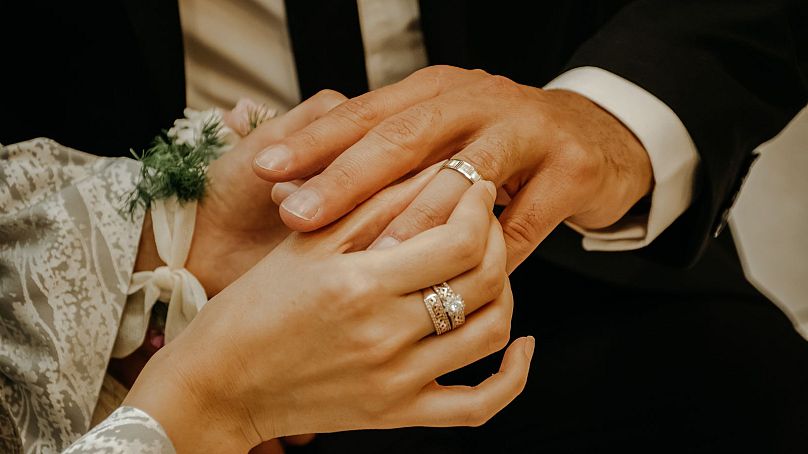
The locals aren’t too thrilled about the influx of soon-to-be newlyweds, as demand for ceremonies at Copenhagen City Hall now vastly outstrips the number of available appointments.
Mia Nyegaard, the Copenhagen official overseeing culture and leisure, told AP that the "significant rise" in foreign couples tying the knot in the capital "poses challenges for Copenhagen-based couples wishing to get married."
This has led local officials to plan intervention measures.
Nyegaard stated that roughly 40 per cent of wedding appointments at City Hall will be set aside for Copenhagen residents from late October onwards.
Furthermore, Copenhagen councillors will examine additional measures after the summer break to ease the overall strain on the city's wedding capacity.
Terms and conditions apply
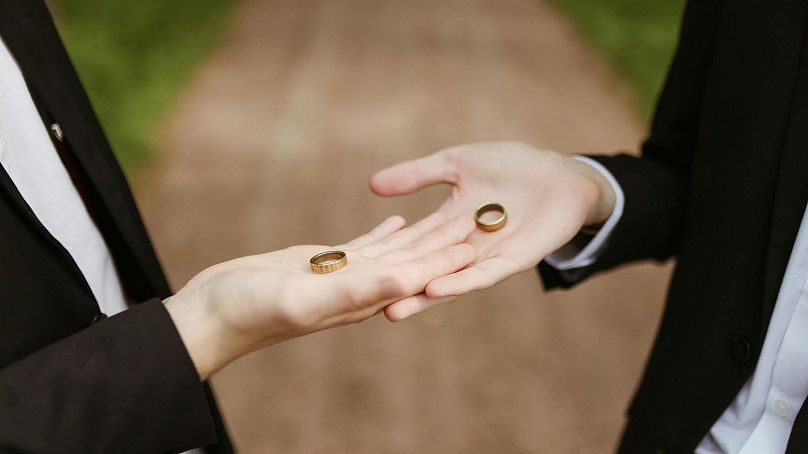
It is also worth noting that while a Denmark wedding may be appealing, especially for same-sex couples as the Scandinavian country is one of Europe’s most inclusive in terms of LGBTQ rights and was the first country in the world to recognize same-sex civil unions in 1989, watch out for hidden paperwork and possible snags once you get home...
While a Danish marriage may seem straightforward on paper, EU member states are not obligated to validate marriages performed in other countries. Recognition depends on each nation’s laws.
Thankfully, by in large, marriages performed abroad are valid in that country if they follow local laws.
To swing back to France, it’s a mercifully easier affair in this regard. The principle of lex loci celebrationis (law of the place of the ceremony) applies, meaning that if the marriage is valid under local law, it is considered valid in France.
Phew.
Sorry – ouf.







